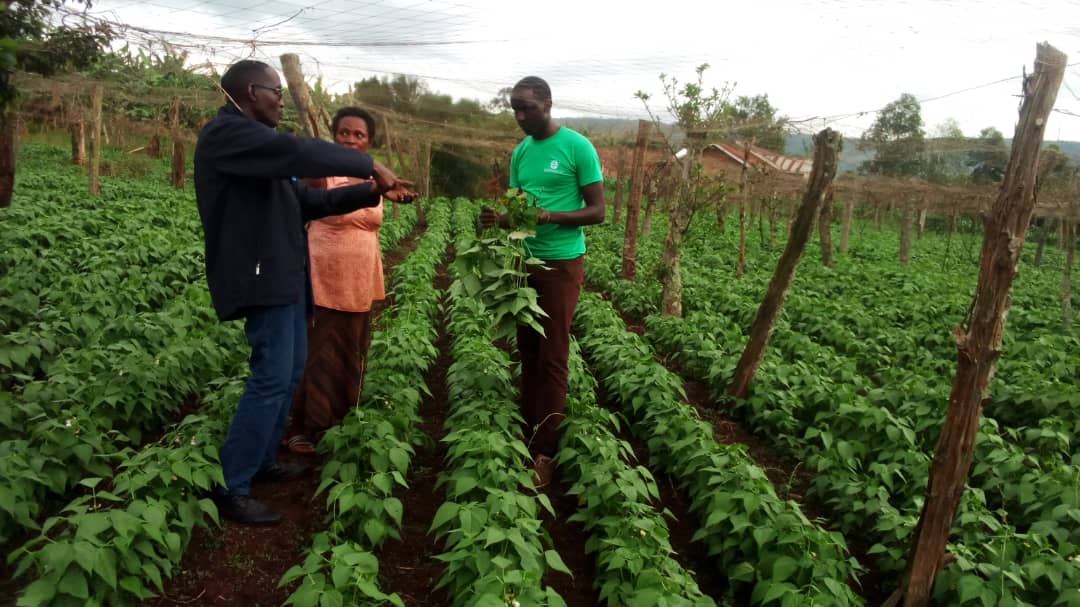Kampala: Stakeholders in various chains of agriculture and food security have called for harnessing of irrigation potentials to improve food security and incomes of smallholder farmers.
The team of water engineers, agriculturists, and researchers drawn from the Ministry of Agriculture, Parliamentary Forum on Climate Change and Non-Governmental Organisations say research has shown the significant for irrigation systems to increase sustainable water use.
The experts were speaking at a public dialogue organised by Food Rights Alliance to discuss the water for agriculture production. The symposium, organised under the theme, “Leveraging the water burden to offset the future water needs,” took place in Kampala on Friday.
Eng. Dominic Banaga Mucunguzi, the assistant commissioner for water for production at the Ministry of Agriculture, called for massive investment in irrigated agriculture by all stakeholders.
“There is a need to focus on water use efficiency, conservation and waste prevention,” Eng. Banaga said.
He said gravity smallholder schemes have the highest likelihood of success.
“Farmer-managed or jointly managed irrigation systems perform better than systems managed solely by a government agency,” said Banaga.
The experts say irrigation is economically feasible for smallholder families, it has multiple benefits and saves labour.
Dr. Joshua Wanyama, from the Makerere University Department of Agriculture and Biosystems Engineering, said that a multidisciplinary approach, coupled with better storage of water during the rainy season, is needed to boost food security.
“Often there is enough rainfall, but not enough storage. We need to scale up water buffer management,” said Dr. Wanyama.
It was, however, noted that government funding to the irrigation sector is still negligible and could greatly affect food production in the near future.
“Uganda has an irrigation master plan, but the funding to implement it is still lacking. Uganda has a budget of 5% towards irrigation yet countries like Egypt and Ethiopia spend over two-thirds of their budget for water production,” said Eng. Richard Cong, managing director of MARS Engineering and Services.
According to Eng. Cong, 34% of the water in Uganda has disappeared in the last 16 years while 80 percent of the country is in the rainfall deficit.
“It rains but the evaporation is so high, that is why we need irrigation,” said Eng. Cong.
The participants, however, noted that irrigation is not a cure-all for food insecurity but a great potential to drive towards achieving this development outcome.
“Before we focus more on irrigation, we need to ask ourselves why are the youth leaving agriculture for Boda Boda (commercial motorcycle)? Agricultural mechanisation is a myth, seeds are bad, fertilizers are bad. I spend Shs10 million on my farm and end up earning Shs2 million and you call me lazy?” asked Henry Kimera, the Food Rights Alliance board treasurer
He called on the government to set a minimum price for agricultural products.
The experts said clear land tenure systems and rights are a prerequisite to irrigation investments.
For many years, farmers have relied on rain-fed agriculture which, has become less reliable with the fluctuations in weather. Most regions in Uganda, especially northeastern, have been hard-hit by food shortages after much of the harvests failed due to prolonged drought.
In 2017, the government developed a 25-year master plan on irrigation that is being implemented across the country.
The plan envisages that to popularise irrigation, demand-driven demonstrations will be necessary and once farmers see that irrigation can be the difference between a good harvest and starvation, the uptake will increase.
Parliament recently approved a Euro 101.8 million loan to develop solar-powered irrigation and water supply system across the country.
The loan will be used to construct 920 water supply systems for irrigation.
